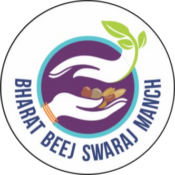Bharat Beej Swaraj Manch (India Seed Sovereignty Alliance) urgently calls upon the Government of India to recognize and safeguard the rights of peasants and other rural communities, on seeds and plant propagation material. These rights, as enshrined in the UN Declaration on Peasant Rights, 2018, need appropriate legal framework support in India. Seed sovereignty is an inalienable right of Indian peasants, farmers and other rural communities.
The meeting convened by BBSM at Nagpur called upon FAO, United Nations and other international organizations to work on a treaty that reflects these rights and remedies any violations of such rights. BBSM also called upon the Government of India to take immediate steps leading to a national registry of heritage crop/plant varieties, which are protected from any form of privatization or usurpation by a few, using intellectual property claims. The government must further take up on a mission mode the support of decentralized conservation, propagation and use of crop/plant varieties on farmers’ fields and community lands.
Bharat Beej Swaraj Manch (India Seed Sovereignty Alliance) further urgently calls upon all Indian farmers, gardeners, common citizens and youth to actively join in a people’s movement to document, publish, propagate and share the wealth of our biodiversity, related knowledge and living bio-culture wherever possible! It urges every farmer and gardener to take a solemn oath to conserve, propagate and share at least one crop/plant variety.
There was clear consensus among all on the following points:
India’s fabulously rich heritage of crop and plant varieties is the lifeline to safeguard the health and well-being of all; and it is the natural birthright of farmers to freely plant, share and use any of the myriad varieties of this collective heritage. India’s national government and international organizations like the FAO have a primary responsibility to safeguard such farmers’ rights and support the decentralized in situ conservation of crop/plant varieties on farmers’ fields and community lands.
But sadly, various international treaties and national laws have failed to effectively conserve our rich heritage of plant varieties. Further, farmers’ rights continue to get compromised and restricted under the onslaught of corporate agriculture and the dubious privatization of growing numbers of crop/plant varieties. While our Indian laws do not permit the patenting of life forms, the registration of plant varieties under PPVFRA in private names negates or severely restricts the collective rights of common people. (PPVFRA = Protection of Plant Varieties and Farmers’ Rights Act)
There are over 4,50,000 accessions in the germplasm collections of NBPGR and numerous more in the collections of other national, university and research institutions. Large numbers of crop varieties gathered from Indian farmers are held too in the collections of international organizations like ICRISAT. The Indian Government has a sacred duty to effectively help Indian farmers reclaim their heritage.
Numerous presentations were made and openly discussed. Among prominent persons sharing their views were: Sri. Aneel Hegde, Hon’ble Member of Parliament, who wanted the government to safeguard the rights of peasants over their heirloom seeds and related knowledge. Dr. Narasimha Reddy Donthi asked for enactment of peasant friendly seed legislation in India, which includes provision that reflect the rights of farmers to save and distribute seeds. Sri. Jacob Nellithanam said farmers are facing severe threats to accessing good quality seeds for various crops, especially traditional varieties adapted to local conditions and needs. Government intervention is needed in this regard.
Bharat Beej Swaraj Manch is an all India alliance of seed savers and farmers, formed in 2014. With the upcoming international workshop on farmers’ rights and the FAO Seed Treaty in September, New Delhi, organized by FAO and hosted by the Indian government, a consultation workshop and meeting of BBSM members was organized at Nagpur on August 25-26, 2023.
